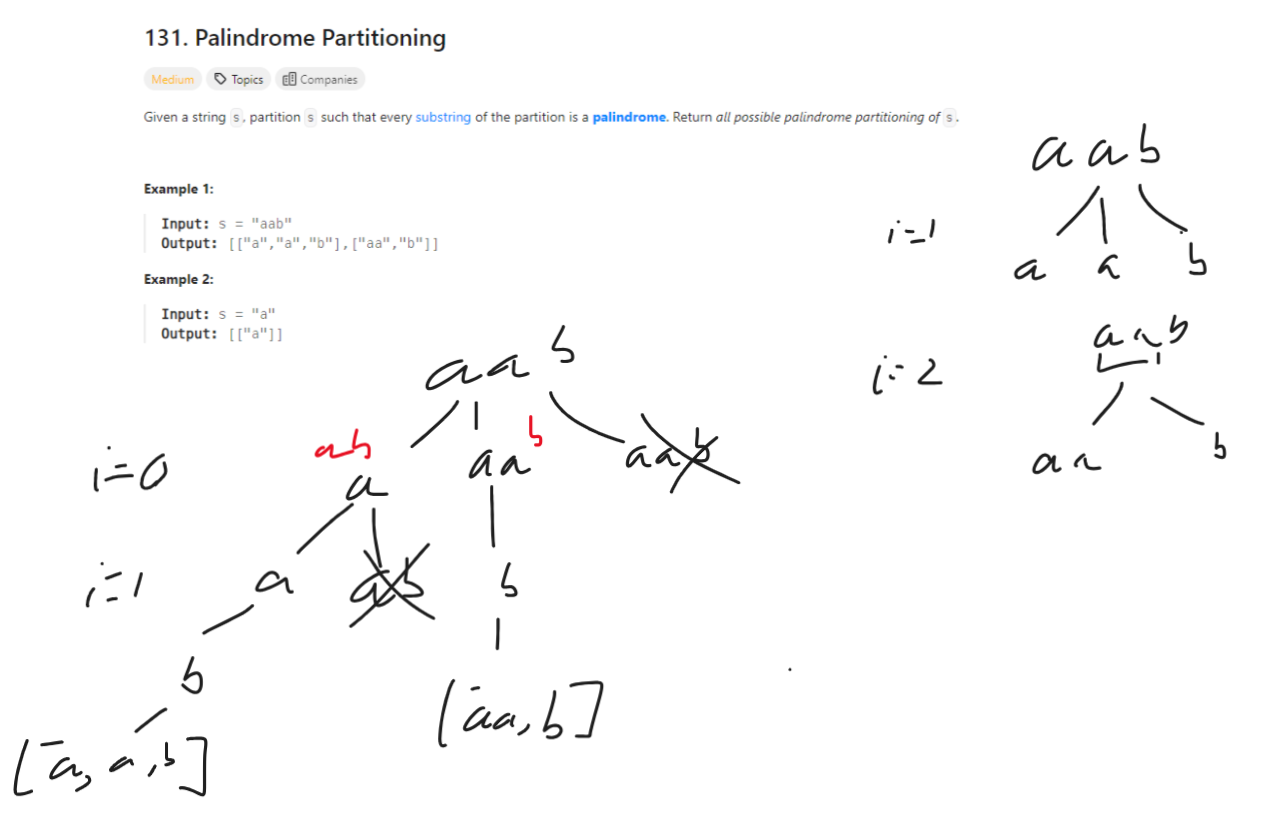Problem of The Day: Palindrome Partitioning
Problem Statement
This problem represents the final challenge within the Backtracking category among my Top 100 Liked problems. The objective is to generate all potential partitions of a given string such that each substring within the partitions is a palindrome. Here are a couple of examples illustrating this problem:
Example 1:
Input: s = "aab"
Output: [["a","a","b"],["aa","b"]]
Example 2:
Input: s = "a"
Output: [["a"]]
My Explanation and Approach
In approaching this problem, I visualized it as a tree structure initiated with the input string. I depicted this in the accompanying image. The fundamental idea behind my algorithm was to systematically examine each substring to determine whether it qualifies as a palindrome. If a substring is a palindrome, I partition it and add it to my final solution named result. If not, I explore further substrings, applying the same logic recursively until all potential substrings have been explored. Crucially, when reaching the end of a branch, I implemented backtracking to explore alternative paths or branches.
The algorithm revolves around traversing the tree structure, branching out into different paths, with each node indicating a potential partition substring. At each level of the tree, paths are branched out by partitioning the potential solution based on the length of a substring. For instance, the first node of the initial level has a length of 1 (a). The second node of the first level has a length of 2 (aa), and so on. As the algorithm progresses down a path, the input string is truncated by the substring displayed on the preceding node at the upper level. This process continues until the input string is empty, signifying the discovery of a solution. Here is my notes when I attempted to solve this problem. I visualized it as a tree structure starting with the input string.
class Solution:
def partition(self, s: str) -> List[List[str]]:
def is_valid(substring):
if not substring:
return False
l, r = 0, len(substring) - 1
while l <= r:
if substring[l] != substring[r]:
return False
l += 1
r -= 1
return True
def backtrack(s, result, curr):
if not s:
result.append(curr[:])
return
for i in range(len(s)):
if is_valid(s[:i + 1]):
curr.append(s[:i + 1])
backtrack(s[i + 1:], result, curr)
curr.pop()
result = []
backtrack(s, result, [])
return result
